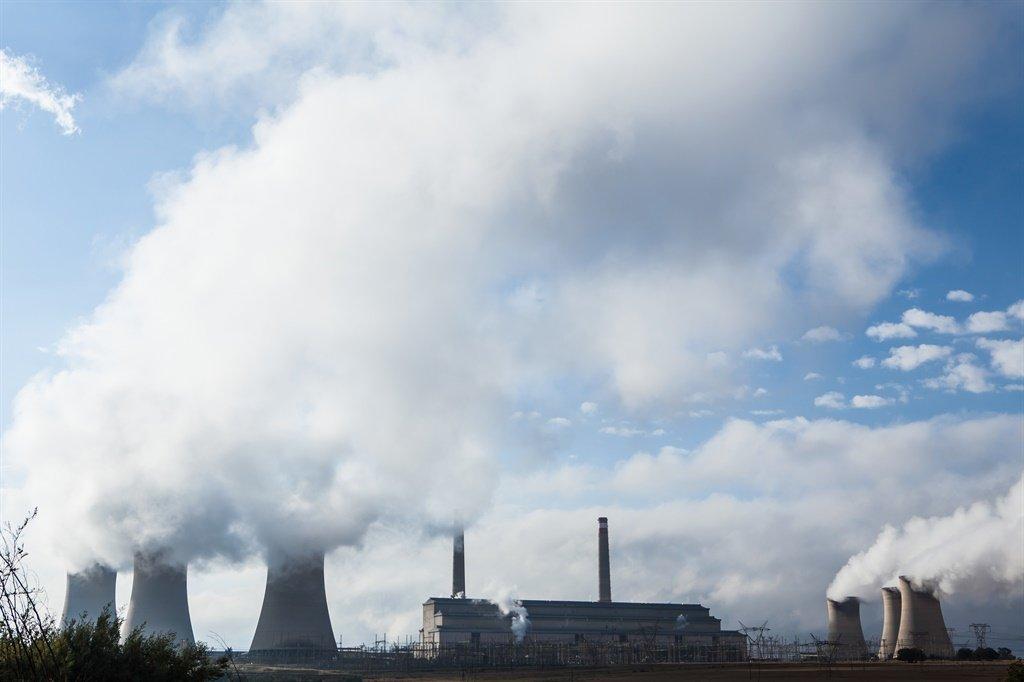Africa-Press – South-Africa. National Treasury won’t ease on its carbon tax rate hikes this decade, despite calls from business to make the tax more amenable to a recovering economy.
Treasury officials on Wednesday responded to public comments submitted to Parliament on the carbon tax.
The carbon tax is an instrument government uses to get businesses and industry to lower greenhouse gas emissions, so that South Africa can meet its climate commitments. It was first implemented in June 2019, at R120 per tonne, and has gradually been raised to R144 per tonne.
The purpose of the tax is not to raise revenue – but rather to change behaviour, by getting businesses to emit less, acting director-general Ismail Momoniat explained. As it is, South Africa is “lagging far behind” what is expected when it comes to the carbon tax. The High-Level Commission on Carbon Prices, the IMF, and the National Business Initiative recommendations on the minimum carbon prices range from at least $25 (~R440) by 2025 and $40 (~R700) by 2030.
“We are far below where we should be,” Momoniat stressed. Businesses also get a range of tax allowances and exemptions which effectively lower the tax they pay.
He also expressed disappointment in business’s “lack of vision” when it comes to the carbon tax. “What is said, is certainly not what they tell investors overseas, when they have meetings and asked to put forward plans of how they themselves plan to emit less carbon in future,” Momoniat said.
Apex business organisation Business Unity South Africa (BUSA), and others that made presentations to Parliament, are vehemently opposed to Treasury’s plans to hike the carbon tax steeply to $20 (~R350) by 2026 and $30 (~R530) by 2030 – as it is unaffordable. Petrochemicals company Sasol even put forward that the proposed carbon tax trajectory would render it unviable by 2029.
BUSA, whose members include Sasol and mining companies, instead proposed that carbon taxes be increased at a rate of consumer inflation plus 2% until 2030.
Treasury is squarely opposed to this.
ANALYSIS | Business wants Treasury to ease up on carbon tax hikes. But is that a bad idea?
Sharlin Hemraj, director of environment and fuel taxes at National Treasury, explained that business’s proposal, which only allows for higher prices to be implemented after 2035, does not “sufficiently reflect” the polluter pays principle nor the growing climate risks. The proposal will also compromise South Africa’s ability to meet its commitments to the Paris Agreement target of limiting global temperature rise to 2 degrees Celsius.
Treasury, however, is open to ensuring that the carbon tax rate beyond 2030 be aligned to the “best available” science regarding reducing greenhouse gas emissions.
Treasury also accepted points business and industry raised about having the carbon tax set in rand terms instead of the US dollar – because the volatile rand-dollar exchange rate will affect business investment and budgeting decision.
Noting requests for more guidance and certainty on how tax allowances will be phased out from 2026, Treasury indicated that such proposals will form part of a review for Phase 2 of the carbon tax rollout. Treasury clarified that it has not been stated in the Budget Review of 2022, nor in Finance Minister Enoch Godongwana’s budget speech that tax-free allowances would be removed by 2030.
“A paper will be published in 2023 on possible design options for the tax free allowances under the carbon tax for public comment and further stakeholder consultation,” Treasury’s presentation to Parliament read. The paper will consider the comments received on the carbon tax this year, as well as the country’s overall commitments to climate action.
Solar homes will hit pockets of Eskom and municipalities, says Momoniat
Business also called for the allowances to be expanded and retained – specifically having government assist taxpayers to transition to green technologies or decarbonise operations.
Treasury noted that there are already tax incentives in the Income Tax Act thatsupport investments in research and development, renewable energy and conservation.
For More News And Analysis About South-Africa Follow Africa-Press






